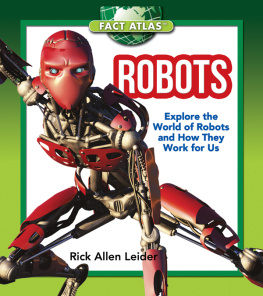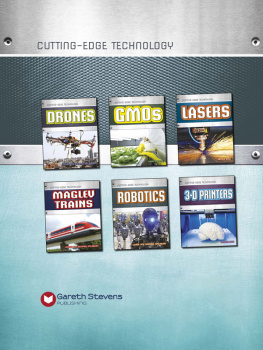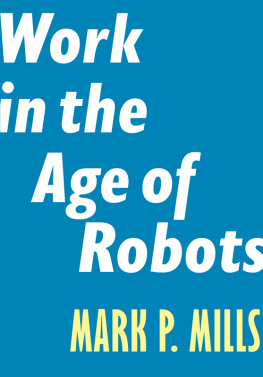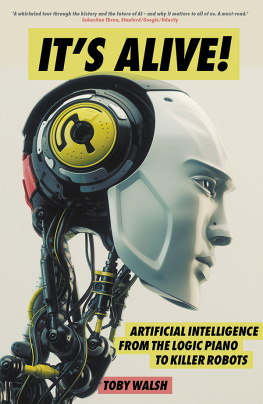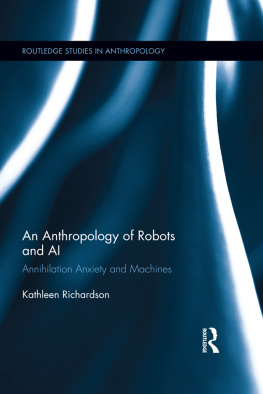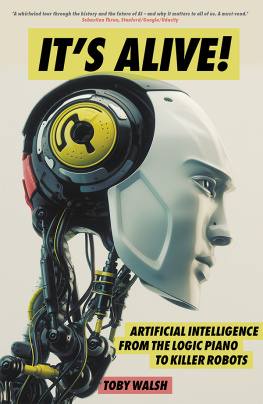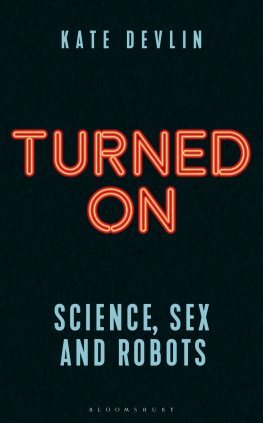Kilham - Winter of the genomes
Here you can read online Kilham - Winter of the genomes full text of the book (entire story) in english for free. Download pdf and epub, get meaning, cover and reviews about this ebook. year: 2014, publisher: Futurebooks.info, genre: Romance novel. Description of the work, (preface) as well as reviews are available. Best literature library LitArk.com created for fans of good reading and offers a wide selection of genres:
Romance novel
Science fiction
Adventure
Detective
Science
History
Home and family
Prose
Art
Politics
Computer
Non-fiction
Religion
Business
Children
Humor
Choose a favorite category and find really read worthwhile books. Enjoy immersion in the world of imagination, feel the emotions of the characters or learn something new for yourself, make an fascinating discovery.

- Book:Winter of the genomes
- Author:
- Publisher:Futurebooks.info
- Genre:
- Year:2014
- Rating:4 / 5
- Favourites:Add to favourites
- Your mark:
- 80
- 1
- 2
- 3
- 4
- 5
Winter of the genomes: summary, description and annotation
We offer to read an annotation, description, summary or preface (depends on what the author of the book "Winter of the genomes" wrote himself). If you haven't found the necessary information about the book — write in the comments, we will try to find it.
Kilham: author's other books
Who wrote Winter of the genomes? Find out the surname, the name of the author of the book and a list of all author's works by series.
Winter of the genomes — read online for free the complete book (whole text) full work
Below is the text of the book, divided by pages. System saving the place of the last page read, allows you to conveniently read the book "Winter of the genomes" online for free, without having to search again every time where you left off. Put a bookmark, and you can go to the page where you finished reading at any time.
Font size:
Interval:
Bookmark:
WINTER OF THE GENOMES
Larry Kilham
Copyright 2014 Lawrence B. Kilham
Cover photo: iurii/Shutterstock.com
Published by
FutureBooks.info
Available for purchase from:
CreateSpace.com
Amazon.com
and other retailers
All rights reserved.
ISBN: 1500822051
ISBN 13: 9781500822057
Library of Congress Control Number: 2014914549
CreateSpace Independent Publishing Platform
North Charleston, South Carolina
To my mother, who long ago
wanted me to write this book,
and who never had the chance to read it.
CONTENTS
FORWARD
L arry Kilhams fast-moving, concise and compelling book is both a real-time history of robotic development and a sober, realistic consideration of the role robots might play in amelioratingor aggravatingthe serious problems that our world faces as it careens headlong into the twenty-first century. Its clear that both outcomes are possible, often simultaneously. How to maximize the first and minimize the second is the question.
I call it a real time history because events are unfolding almost faster than we can write about them, and certainly faster than we can understand and assess their impacts. This is happening because the excitement of the field and its economic impact have attracted many of the worlds brightest humansfrom the worlds of science and technology but also from finance and government. Sometime in the future it may also attract the best robotic minds as well. We shall see.
We dont know yet whether robots will ever be truly creative or thoughtful or emotional, but it is already quite clear that they can far outperform people in any activity that smacks of mere repetition or speed or strength. It is programmed computation and microelectronics that make this possible. What robots can already doat low cost, with low environmental impact and with none of the neediness of human beingsmakes makes their attractive side almost irresistible. As is often the case with human endeavors, the downsides are left for later generations to solve.
Nobody knows how many people the Earth can support, but we are in the midst of a gigantic experiment that is likely to tell us the answer. With our population at more than seven billion, having doubled over the last 25 years, our physical world and all of its inhabitants are being stressed to the point of imminent collapse. While there have been several cataclysmic epochs in Earths history, there has never before been one caused by human beings. There is simply no doubt that this one is. Appropriately enough, our era is called the Anthropocene.
Clearly, rapid growth in population is driving this problem. Already it has become obvious that there simply isnt enough water or raw materials on Earth to allow us to continue on our present rapacious trajectory. Its also clear that our lack of expansionary restraint has led to devastating impacts to our precious biospherethe the home for life as we know it on Earth. Whether one speaks of global climate change, or the poisoning of the oceans or the huge diminishment of natural species, mankind owns these problems. They will only be solved by people and nations working together to find much wiser ways of stewardship. Free markets will play an essential role, but so also will extensive national and international planning.
Our hope must be that if mankind created these problems it should be smart enough to solve them. Doing so will require great creativity and good will, not to mention a sense of urgency. Unfortunately, the issues are likely to become all the more complex because of unintended consequences. No one knows how societies will respond should massive unemployment arise due to the emergence of large robotic populations. Perhaps even more importantly, no one knows how people will respond to the lack of meaningful work in their lives.
Of course no one yet knows how this complex tale going to turn out. Larry Kilhams book is an important contribution to how we should be thinking about the existential task before us.
Robert Eisenstein
Founding Director, Santa Fe Alliance for Science
Former President, Santa Fe Institute
INTRODUCTION
T he wind blew gently through the whispering white pines towering above. The pasture grass smelled sweet, and there were the rasps of the locusts and the calls of the meadowlarks. The bees were darting in and out of the apple blossoms. I was dozing in the warm sun against my horse, Gramps, who was also dozing, and snuggled against both of us was my dog, Axel. I was a contented part of the natural universe and so were all the creatures there.
That was six decades ago. Today, if I were a young man, I would wake up and reach for my smartphone. My world would be my friends and information offerings competing for my attention. Nature would be an afterthought and, at best, a limitless source of food and natural resources. My snuggly friend could be a cute robot who placed minimal demands on anything or anybody. The meadowlarks long since have disappeared. And the bees? Thats a question we will explore later.
Under pressure from critically declining resources, population increases, and the cerebral grip of the information technologies, we have lost our way. We are starting to embrace robots to coddle us and do ever more of our work. The robots are but one manifestation of artificial intelligence (AI). AI can make life more productive and is said to give us relationships we trust more than with humans.

Ever since the Industrial Revolution, we have blissfully trampled upon the environment and gobbled up natural resources in an attitude of hubris of the species. Man has always prided himself on his intelligence, which raises him above all other living things in taking advantage of his resources. His intelligence is unique in that man has the capacity to be thoughtful and creative. No other species can make that claim. Unfortunately, the creativity has often been used for selfish purposes.
Yet there are many species with much smaller brainshoney bees for examplewho in some ways seem just as intelligent as us or more so. These tiny creatures pass their lifetime finding succulent flowers and managing a hive. The bees learn and remember, and they carry out such apparently human functions as group decision-making and job specialization. Their consciousness does not extend, however, beyond their immediate world; they have little or no self-awareness; and they are not capable of abstract thinking.
Where there is a high degree of hive-like specialization and repetition in the human world, such as in automobile assembly plants, smartphone production, or insurance companies, there is less need to be creative than in entrepreneurial ventures. AI and robots will increasingly be employed in those hives. I will uncover many other areas, some unexpected, where AI and robots will have a strong future.
It is also true that humans have been the only species to accumulate knowledge in reference collections called libraries and data clouds. The most intelligent birds and animals do this only to a very small degree except for specialized needs like migratory navigation or techniques of nest building. The designers of AI and robots will exploit the human-built data banks, however. They will build into their machines the required reference information and provide for automatic updating.
We should not think of AI as an intellectual competitor of humans. A limited number of special AI computers in a few decades may have significantly more intelligence than humans do, but those computers are not likely to have a high degree of self-awareness or the capability of unfettered abstract thinking. The use of AI and robots will be no different from the use of seeing-eye dogs, homing pigeons, robotic vacuum cleaners, or factory assembly robotsthey all have less intelligence than humans do, but they are used because they are more efficient than humans in their area of specialty. To make sense of all of this, we must view humans, nature, and all forms of AI as one ecosystem. Each species can alter the futures of the other species.
Next pageFont size:
Interval:
Bookmark:
Similar books «Winter of the genomes»
Look at similar books to Winter of the genomes. We have selected literature similar in name and meaning in the hope of providing readers with more options to find new, interesting, not yet read works.
Discussion, reviews of the book Winter of the genomes and just readers' own opinions. Leave your comments, write what you think about the work, its meaning or the main characters. Specify what exactly you liked and what you didn't like, and why you think so.

